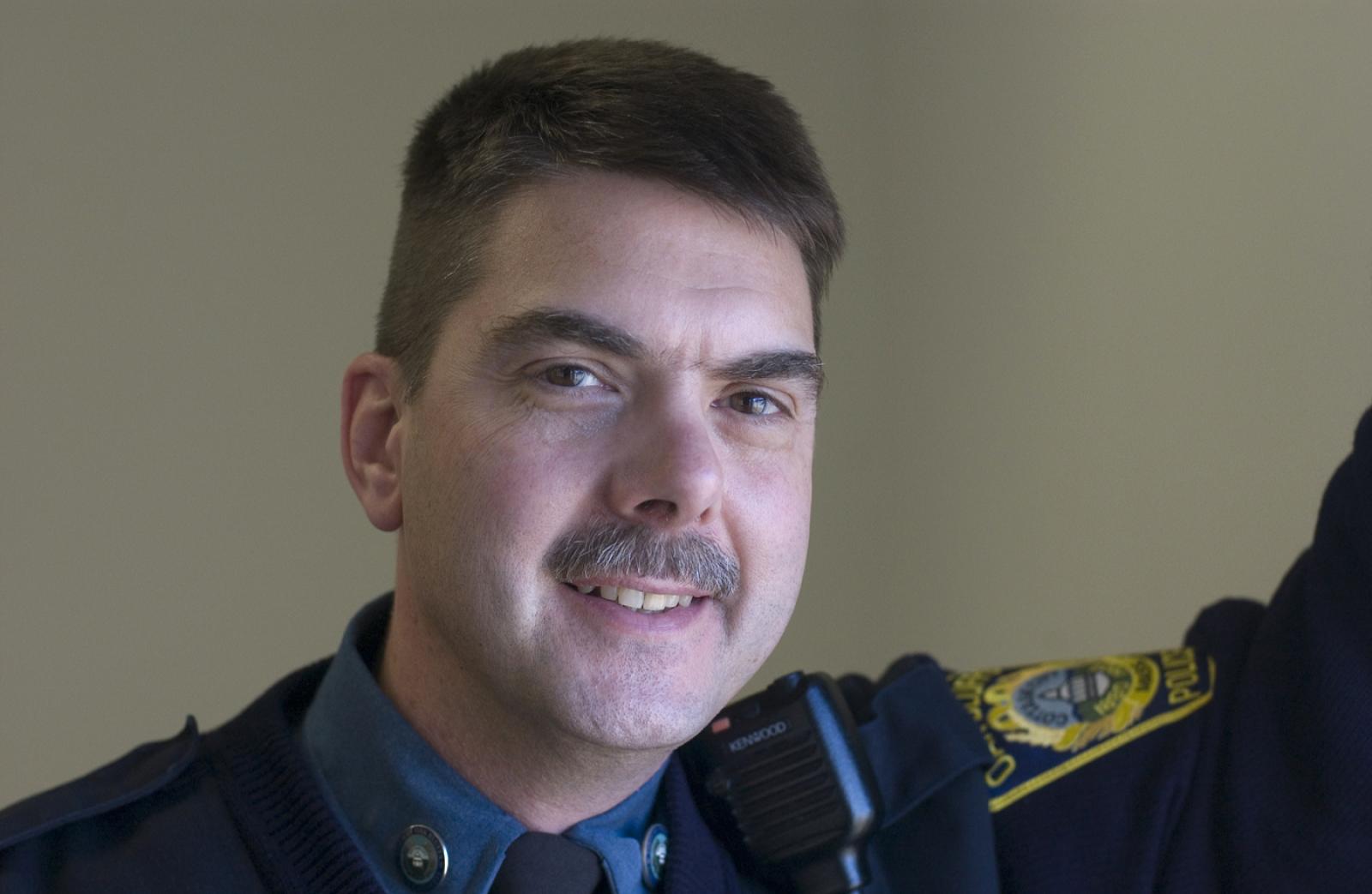The police officers’ prayer Chaplain David Berube offers his colleagues at the Oak Bluffs police department begins with the words: “Lord, I ask for courage . . . courage to take me where others will not go.”
Mr. Berube, also a chaplain with the Air Force National Guard, is returning to his post at the department after a four-month deployment at the Mortuary Affairs Operations Center at the Dover Air Force Base in Delaware, the first stop on American soil for the remains of fallen servicemen and women. It is a hallowed place whose solemn function is difficult to contemplate, and for much of the past decade the unpleasant reality of life on the base has been shrouded from public view. For Mr. Berube, however, his work at Dover was the most rewarding of his life.
The principal function of the Air Force Mortuary Affairs Operations Center, he said, is that of any other funeral home: the dignified preparation of a body before it is shipped to its final resting place. Working with the grim and gruesome remains of men and women broken on the battlefield, post-traumatic stress disorder can be as high at Dover Air Force Base as it is in the theatre of war. It was Mr. Berube’s job to offer counsel and spiritual support to shaken mortuary affairs employees.
“It’s a military mortuary, so people are seeing things you don’t normally see in your daily life,” he said in a recent interview. “Like any traumatic event, that can overwhelm somebody’s ability to cope.”
Mr. Berube’s primary job, however, was to take care of families who attended the dignified transfer of their loved ones to American soil. Earlier this year Defense Secretary Robert Gates announced that the Pentagon would allow media coverage of the transfer with family consent, reversing a ban that has been in place since 1991. In addition Mr. Gates ordered the Pentagon to pay for families’ travel expenses if they chose to attend. The result, Mr. Berube says, has been a huge increase in the number of families that have come to Dover.
“Prior to the policy change, although families have always been welcome to come, very few did,” he said. “Now over 75 per cent of the families come, so that’s made a huge impact, but it hasn’t changed how we perform the dignified transfer itself.”
When an airplane loaded with the transfer cases of fallen soldiers lands at Dover — they are called transfer cases, not caskets, as they are not part of an official funeral ceremony and the military does not want families to feel obligated to attend — a carry team from the fallen soldier’s service branch, along with a senior officer and military chaplain, board the plane. After a prayer, the carry team hauls the flag-draped transfer cases off the plane and into a truck while fellow servicemen and women salute. It is a brief and quiet ceremony, but a wrenching one for the family members whom it was Mr. Berube’s job to console.
“There were days that were particularly difficult,” said Mr. Berube. “Being on the flight line in the middle of the night when it’s dark and quiet and the only sound is sobbing family members, or being with very young widows, or mothers and fathers who lost kids who are the same age as your own kids, it was all just deeply moving.”
Mr. Berube, an ordained Baptist minister, would comfort and console people from all faiths or no faith at all.
“There was never a day where I walked away from work and thought, ‘Gee, I wonder if I did anything significant today?’ The mission is so sacred,” he said.
On the Vineyard Mr. Berube is a full-time patrolman but he is also the emotional and spiritual bedrock of the Oak Bluffs police department, where officers sometimes require counsel for the stresses and strains of a life on duty. “Upholding those who uphold the law,” is how he describes his mission.
He is happy to be home and adjusting to Vineyard life again, where he is active in the Island religious community and his schedule is not as unpredictable as life at Dover. Still, he cannot shake the memories of his time there, nor would he want to.
“I still think about those family members I met with, the stories they told about their loved ones,” he said. “I think that everyone of them in one way or another has attached themselves to my soul.”
He doesn’t know when he will deploy again, but Mr. Berube looks forward to his next assignment.
“It just was a great fit for me. It was a good mission for me,” he said.





Comments (2)
Comments
Comment policy »